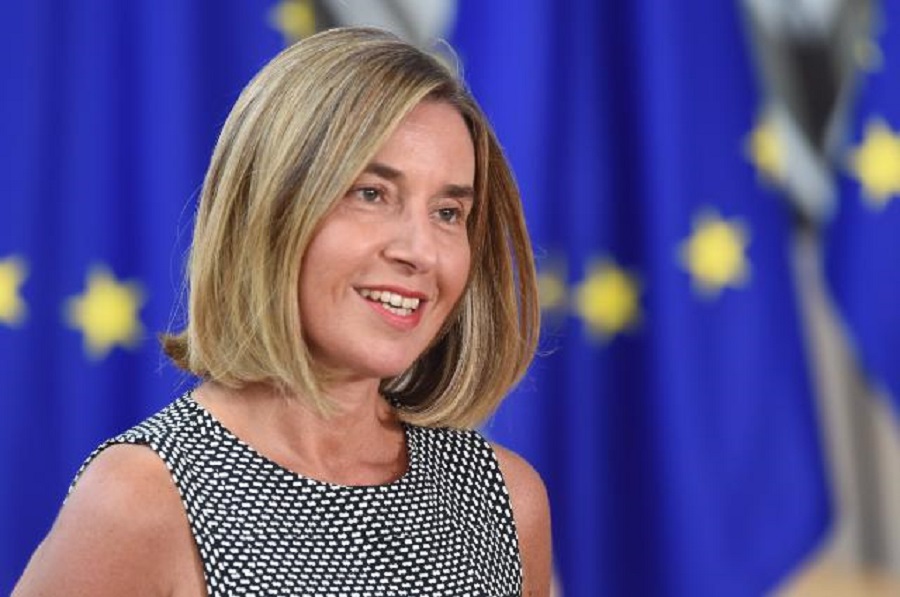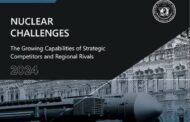Speech by High Representative/Vice-President Federica Mogherini on EU-NATO relations at the European Parliament plenary session
Strasbourg, 12 June 2018
_____________________________________________________________________________________________________________________________________
Let me first of all thank the Rapporteur [Ioan Mircea Paşcu] for an excellent work on one of the central issues in the work we are doing for a stronger Europe of Defence. The report wishes for – and I quote – “A more substantive partnership within the European Union and NATO.“
Not only do we share 22 members, we also face similar challenges and we have converging security interests. Almost 95% of citizens of the European Union live in NATO countries. So, protecting these people is the first of our shared interests.
At the same time, the report is also very clear that EU-NATO cooperation should be complementary – as it is – and respectful of each other’s specificities – as it is.
We are different organisations. We, the European Union, are not a military alliance, and we do not intend to become one. Our European way to peace and security is unique, and we are proud of the work we do in the way we do it.
And our friends at NATO appreciate the specificity of what we do. Our missions – both civilian and military – carry on some very different tasks compared to NATO operations. Complementarity is in the nature of our partnership. We do different things, and this is why we are increasingly working together on the ground, taking advantage of our complementarity.
This is why the NATO leadership – starting from the Secretary General [of NATO] Jens Stoltenberg – has been so supportive of our work towards a stronger Europe of defence. All the work we have done inside the European Union has always been done hand in hand with a strong NATO support and with the deepening of the partnership with NATO.
On the one hand, we are working to strengthen the capabilities of our Member States – and in most cases, these are also NATO allies – as they have one set of forces that can be used in European missions and in NATO missions alike; let me also add in UN missions alike. And in this way, a stronger European Union in the field of defence makes NATO stronger.
And on the other hand, we are also investing in our complementarity – for instance in our civilian capabilities. As you know, last week, together with the Secretary General of NATO, we presented to our respective Councils – to the European Union Council and the NATO Council – the third progress report on the implementation of our Joint Declaration that we signed during the Warsaw Summit of NATO, the last summit we had.
Let me just highlight some key achievements that are mentioned in this progress report and, by the way, that will also constitute a good basis for our further work looking ahead at the next NATO Summit in Brussels.
First, the clearest progress is probably on military mobility. Today, more than ever, rapid response has become an essential requirement for our security. Getting our assets where they are needed, and doing so swiftly, is a necessity we need to ensure at all times. But this is also about how efficient we are in our defence spending. Because if we invest in the best military capabilities and the most advanced defence systems, but then they get stuck at the border for customs checks, obviously we have an efficiency issue. And if we cannot move our assets rapidly, we will need to buy more of them to make sure that they are in the right place at the right time. This is clearly not an efficient way to invest the defence budgets. So, it is something relevant for operational reasons, but also for budget reasons.
A big part of the work here is going on at the European Union level, where obviously we have competences and instruments to address these issues – with a project under the Permanent Structured Cooperation, but also with a proposed new investment from the Commission. And we are working in constant coordination with NATO. Experts from NATO are taking part in our work, and NATO has shared its parameters for transport infrastructure. There is no better example of how a stronger European Union in the field of defence also makes NATO stronger.
The second field that I would mention as an example is the hybrid threats. After especially the Salisbury attack, the European Council has called for an increased EU engagement on cyber security, strategic communication and counter intelligence, but also – in close cooperation with NATO – on chemical, biological, radiological and nuclear issues. We are currently working to respond to this tasking.
Our proposals will be reflected in three documents that will be presented in the European Council at the end of this month: a Joint Communication on the follow-up to Salisbury; a Joint Report on the progress of the implementation of the 22 joint EU-NATO actions on Hybrid Threats; and the 15th Security Union Progress Report. Our European and NATO staffs are working together on hybrid threats in a number of different contexts on a daily basis. I would only mention the Helsinki Centre of Excellence on hybrid threats, but also our Task Force on Strategic Communications, and the EU Hybrid Fusion Cell for situational awareness.
The next EU-NATO parallel and coordinated exercises are to take place next November and similarly to last year, the exercises will be based on a hybrid scenario, and will aim at synchronising our two organisations‘ crisis response.
Third area of cooperation is our work to build the capacities of our partners. In particular, we have intensified the exchange of information at staff level on three pilot countries: Bosnia and Herzegovina, Moldova and Tunisia, but work has also intensified on Ukraine, Georgia and Jordan. And we are working together also in Ukraine on issues such as strategic communications, training, and the security sector reform.
Finally, the first ever EU-NATO staff-to-staff dialogue on counter-terrorism took place at the end of May. It focused on cooperation against terrorist threats, collaboration on the Global Coalition against Da’esh, capacity building of partner countries, and development of scenario based discussions.
These are just a few examples, still many – and I apologise for being long – that clearly demonstrate the new engagement between the two organisations. Our cooperation has never been better, has never been wider and has never been deeper.
On our side, we, Europeans have finally decided to take full responsibility for our own security, and this is also in the interest of our partners in NATO. We are autonomous, but we are partners – very good ones – we are different, but we do share the same interests. We could not afford to walk in opposite directions. It would not be efficient, it would not be safe, and it would not be smart. And this is why we do not do it and we will never do it.
As your report rightly says, it is time for a more substantive partnership between the European Union and NATO – and this is precisely what we are doing today already and even more in the future.
Thank you.
* * * * *
Zdroj: https://eeas.europa.eu/headquarters/headquarters-homepage/46386/speech-high-representativevice-president-federica-mogherini-eu-nato-relations-european_en







